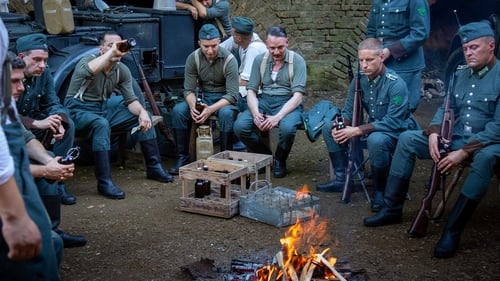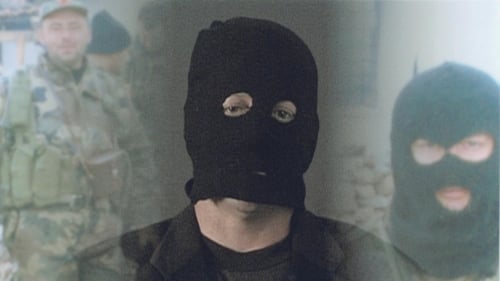
Self - Interviewee
The Nuremberg Einsatzgruppen trial of 1947/1948 is considered the largest murder trial in history against members of four death squads from the security police and SD (the security service of the SS). During World War II, six million Jews were murdered. Four million died in the extermination camps, but two million people were killed in systematic mass shootings. The perpetrators came face to face with their victims. They shot at men, women, children - day after day, obediently and assiduously, as if it were normal work. Tens of thousands of Germans belonged to the mobile commandos of the task forces and police battalions. Who were these men, how could they commit such murders? What did the few survivors tell, how were they able to escape the mass extinction and live on with the horrific experience? Based on written traditions, original documents, film footage and photos as well as expert statements, the documentary traces the path of one of these murder battalions.

Self
Almost 1 million people in 22 countries carried out the unprovoked murder of 11 million innocent men, women and children. The Allies knew where a great many of the murderers could be found - Germany, Austria, Italy, the UK, the USA, Canada, Australia, and numerous countries in South America. The Allies unanimously agreed to prosecute those responsible when they drew up The London Agreement in August 1945, but, after the late 1940s, these very same Allies did almost nothing. Why were so many were actively permitted to get away with their crimes?

Himself
A chronicle of the Holocaust, told by the resilient survivors who lived through it.

Himself
A fascinating portrait of Ben Ferencz, the last surviving Nuremberg Trial prosecutor, who continues to wage his lifelong crusade in the fight for law and peace.

Self

Self
Chronicles the adventurous life of Hungarian-born Jewish lawyer Benjamin Ferencz, who fled to the USA as a child and later became chief war crime prosecutor in the Nuremberg Trials of 1945-1949 and one of the founding members of the International Criminal Court, which entered into force in 2002.

Himself
Five interwoven stories of remarkable courage from Nuremberg to Rwanda, from Darfur to Syria, and from apathy to action.

Self
A film essay which includes interviews with the perpetrators of genocide committed over the last 50 years - from World War II to the Balkan conflict. What enables some people to commit mass killings during war? And how do they live with such deeds on conscience? This is at the heart of director Ove Nyholm's long-awaited film 'Anatomy of Evil'. Behind the film lies extensive scientific research, resulting in numerous impressive candid interviews with World War II hangovers and the Balkan war, which lift the carpet for some of the reflections behind their gruesome actions. Each interviewed has their personal story to tell. The sound side plays a significant role in the film and reinforces the emptiness and melancholy expressed by the interviewed persons.





